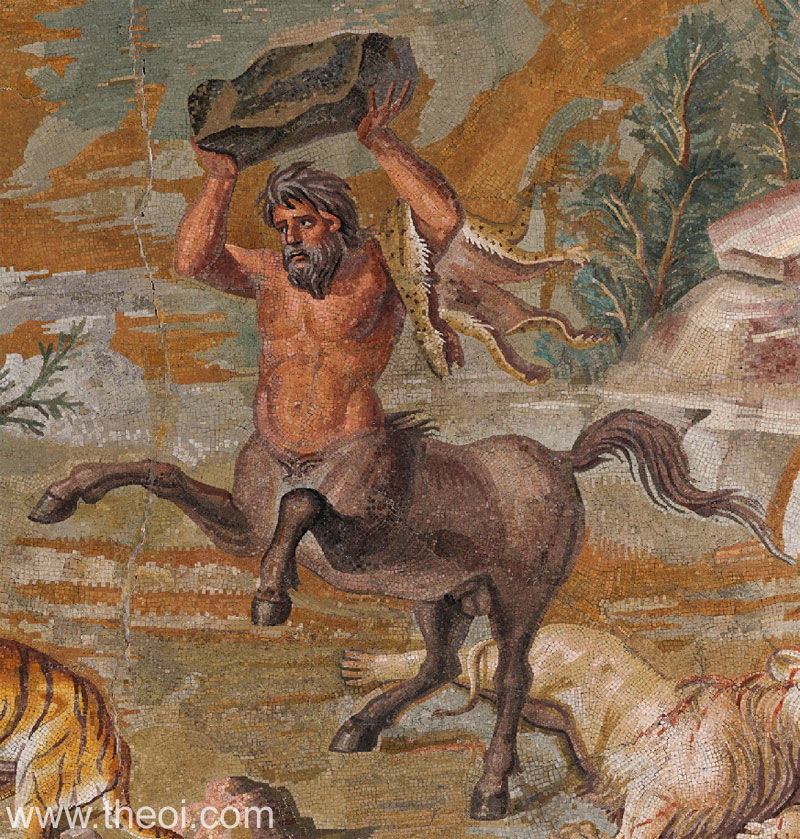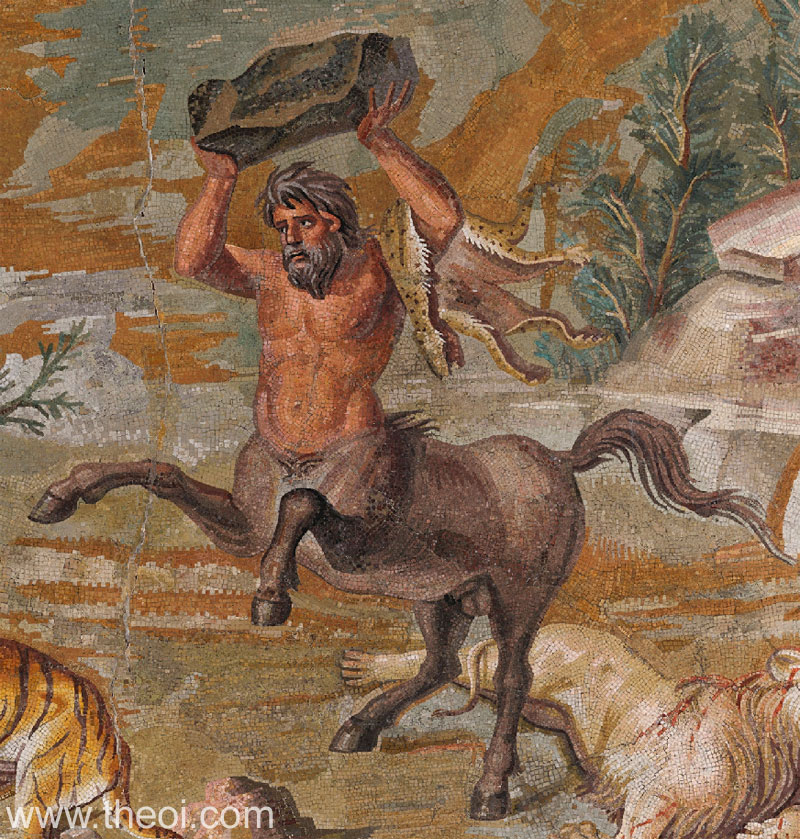If you’re a fan of horseback riding or simply interested in its connection to mythology, then you’re in for a treat. The website “http://horsebackridingdude.com/” is a blog dedicated to providing comprehensive and engaging content about horseback riding. With the aim of expanding the blog and attracting a wider audience, the author is on the lookout for 200 relevant topics that will captivate readers. So, whether you’re a seasoned rider or just curious about the mythical aspects of horse riding, get ready to embark on an exciting journey filled with compelling articles and fascinating insights. And to top it off, each post will conclude with a list of the 10 most common questions about horseback riding, complete with detailed answers. So, saddle up and get ready to explore the enchanting world of horseback riding.
Horseback Riding and Its Connection to Mythology
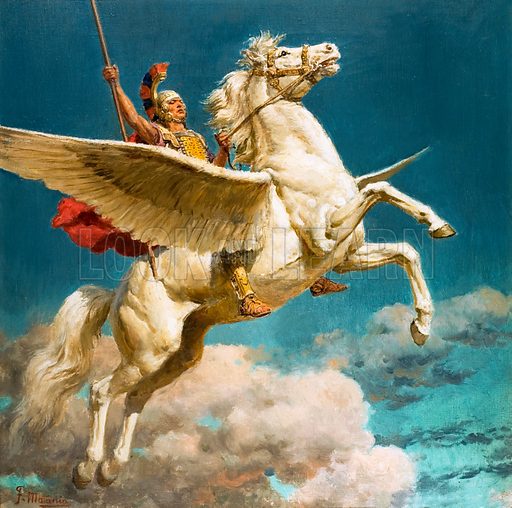
Introduction
Horseback riding has a rich and fascinating history that spans cultures and civilizations. From ancient times to the modern era, horses have played an important role in human society. Beyond their practical uses, horses have also captivated the human imagination and found their place in mythology. This article explores the deep connection between horseback riding and mythology, delving into the role of horses, mythical creatures associated with them, symbolism, gods and goddesses, famous figures and their horses, legends and folklore, rituals and ceremonies, and their presence in modern mythology.
The Role of Horses in Mythology
Horses hold great significance in various mythologies around the world. They often symbolize power, strength, freedom, and grace. In many mythological stories, horses serve as companions to heroes and play a crucial role in their quests and adventures. The noble characteristics of these majestic creatures make them a fitting accomplice to mythological figures, both human and divine.
Mythical Creatures and Horses
Mythology introduces us to an array of enchanting and mythical creatures that form a bond with horses. The Centaur, a half-human and half-horse creature, embodies the duality of man and nature. Pegasus, the winged horse, soars through the skies, carrying legends and inspiring imagination. The Unicorn, with its single horn, represents magic and purity. Finally, Sleipnir, the eight-legged horse of Norse mythology, stands as a symbol of speed, intelligence, and otherworldly abilities.
Horse Symbolism in Mythology
Horses in mythology are imbued with various symbolic meanings. They represent strength, power, and the ability to overcome obstacles. Horses also symbolize freedom and independence, as they roam the vast open plains. Their beauty and grace captivate the human eye, making them a symbol of elegance. Furthermore, horses are often associated with wisdom, intelligence, and fertility, showcasing their multifaceted symbolism in mythology.
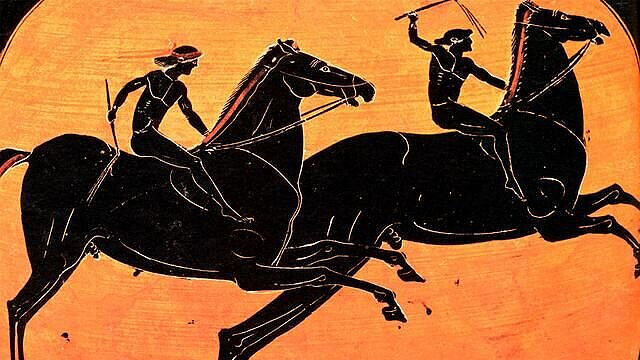
Horse Gods and Goddesses
Mythology honors horses through the presence of specific gods and goddesses associated with these magnificent creatures. In Greek mythology, Poseidon, the god of the sea, also held dominion over horses, using them to travel the land. Epona, the Celtic horse goddess, symbolized fertility, abundance, and protection of horses. Rhiannon, the Welsh horse goddess, represented sovereignty, transformation, and the revered connection between humans and horses. In Irish mythology, Macha embodied strength, endurance, and the regal qualities of horses.
Horseback Riding in Ancient Mythology
Ancient cultures around the world incorporated horseback riding into their mythologies. Greek mythology portrays heroes, such as Achilles and Odysseus, riding horses into epic battles and challenging quests. The Romans also celebrated horseback riding, exemplified by their legendary cavalry. Norse mythology features Odin, the Allfather, riding his eight-legged horse Sleipnir, representing divine transportation and wisdom. Even Egyptian mythology depicts horseback riding as a means of transportation and military prowess.
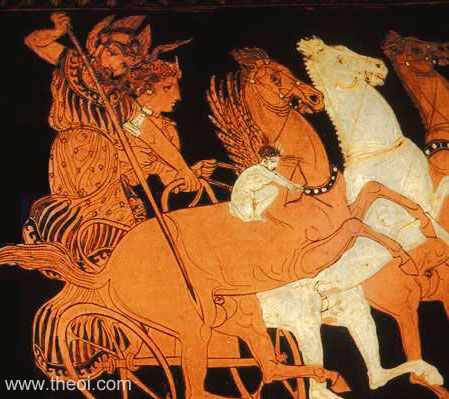
Famous Mythological Figures and Their Horses
Throughout mythological tales, numerous famous figures are intricately linked with their horses. Alexander the Great is famously known for his partnership with the magnificent steed Bucephalus. Odysseus, the hero of the Greek epic “The Odyssey,” relied on his faithful horses during his arduous journey back home. Achilles, known for his heroic exploits in the Trojan War, rode his chariot pulled by mighty horses. In Norse mythology, Odin and the Valkyries rode horses as they embarked on their noble endeavors.
Legends and Folklore Surrounding Horses
Legends and folklore have perpetuated stories surrounding horses, cementing their mythical status in various cultures. The legend of the Trojan Horse, an ingenious stratagem used by the Greeks in the Trojan War, showcases the horse’s cunning and powerful symbolism. The myth of the Kelpie, a water-dwelling creature that assumes the form of a horse, warns of their treacherous nature. The Wild Hunt, a supernatural phenomenon in European folklore, features spectral riders and their horses charging across the night sky. Scottish brownies, mischievous household spirits, were believed to have a deep affinity and connection with horses.
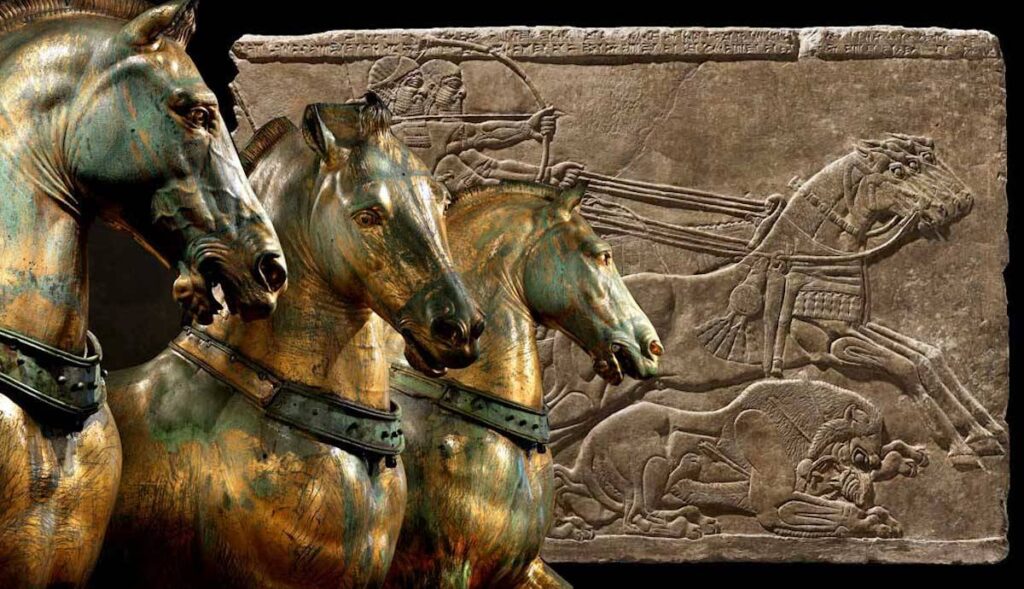
Horseback Riding Rituals and Ceremonies
Horses have been an integral part of rituals and ceremonies across different cultures throughout history. Ancient civilizations would offer horse sacrifices as a means to communicate with the gods and seek their favor. Horseback riding was often considered a rite of passage, marking important milestones in personal and societal growth. Religious festivals frequently featured horse racing as a form of entertainment and a demonstration of skill. Warriors and cavalry units engaged in specific rituals to invoke the blessings of the horses they rode into battle.
Horses in Modern Mythology
Horses continue to hold a place in modern mythology, appearing in literature, film, and popular culture. “The Legend of Sleepy Hollow” by Washington Irving introduces the iconic Headless Horseman, a spectral figure haunting the town. The animated series “My Little Pony” has brought horses into the pop culture spotlight, capturing the hearts of children and adults alike. Beyond fiction, horses are also revered as totems and spirit guides, embodying specific qualities and providing guidance to those who seek them. Superstitions and beliefs continue to surround horses, intertwining with contemporary mythology.
As we explore the profound connection between horseback riding and mythology, it becomes evident that horses have not only been an essential part of human history but also entwined themselves into the very fabric of our collective imagination. From the symbolism they represent to their role in stories of gods, heroes, and legends, horses continue to captivate our hearts and inspire our minds. By delving into mythology, we gain a deeper appreciation for these magnificent creatures and their enduring role in our cultural narratives. So, saddle up and embark on a journey through the intertwined worlds of horseback riding and mythology, where the magic and wonder of horses await.
